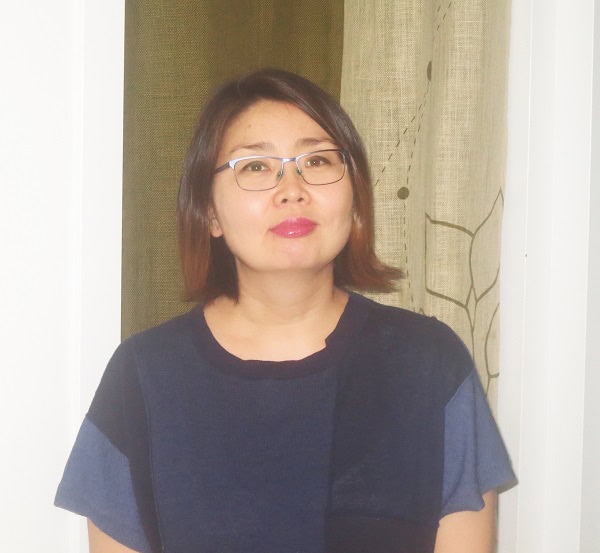Tatiana Linkhoeva is an assistant professor at New York University. She lives in New York City, New York, and has been a member since 2013.
Website: https://as.nyu.edu/content/nyu-as/as/faculty/tatiana-linkhoeva.html
 Alma maters: Diploma/Degree (philosophy), Moscow State University, 2001; MA (interdisciplinary cultural studies), University of Tokyo, 2006; PhD (history), University of California, Berkeley, 2015
Alma maters: Diploma/Degree (philosophy), Moscow State University, 2001; MA (interdisciplinary cultural studies), University of Tokyo, 2006; PhD (history), University of California, Berkeley, 2015
Fields of interest: modern Japan, Russo-Japanese relations, radicalism, empire, migration, minorities
Describe your career path. What led you to where you are today? Coming from a Buddhist and Asian community (the Buriats) in Russia, I chose to study Japanese Buddhist philosophy at the Moscow State University. With a scholarship from the Japanese Ministry of Education I went to study at the graduate school of University of Tokyo. There I realized that my exoticized image of Japan missed the fact that much of modern Japanese philosophical writing was, in fact, a response to the historical predicament that Japan, and Asia in general, found itself in the 20th century. I chose history as my profession to understand that predicament.
What do you like the most about where you live and work? I have wonderful colleagues, and New York University has been very supportive to me as an international scholar. I really like students in my classes. They are very diverse, much as New York City, with different cultural and ethnic backgrounds, very open and welcoming. I especially enjoy having students from Asia as they always bring their own, novel perspectives on Asian history.
What projects are you currently working on? I am finishing my first book, tentatively titled Revolution Goes East: Imperial Japan and Soviet Communism, which will be published by Cornell University Press in 2019. I have started my second project on the migration of Mongol-speaking minorities in northeast Asia between 1900 and 1945, and their role in power struggles between Imperial Japan, the Soviet Union, and Republican China.
Have your interests evolved since graduation? If so, how? While doing research for my first book, which deals with how various political groups in Japan reacted to the advance of Soviet communism in East Asia, I came to realize that a lot of these relations were mediated by ethnic and religious minorities inhabiting the borderlands between the regional super powers. I am still interested in intellectual history, but for my next project I will move beyond Japan, and engage with migration and empire studies, as well as ethnography.
What’s the most fascinating thing you’ve ever found at the archives or while doing research? I have heard about Urzhin Garmaev, a Buriat primary school teacher, who escaped the Russian Revolution in 1919 and later became a general in the Manchukuo Imperial Army. What I did not know until one of my Japanese colleagues told me, is that this Buriat is known in contemporary Japan because he was one of the characters in the popular Japanese manga Rainbow Trotsky.
Is there an article, book, movie, blog etc. that you could recommend to fellow AHA members? Akira Kurosawa’s movie Dersu Uzala (1975) and Siberiade (1979) by the Soviet film director Andrey Konchalovsky are my favorite movies. They contain everything I am passionate about: the dynamics between “small people” and a great power, messianism of Big Ideas, Siberia, and even the Japanese romantic perspective on that vast territory.
What do you value most about the history discipline? Telling the stories of peoples who have been forgotten, tracing the unexpected circulations of ideas and people, and realization of the complex and interconnected past and present of the world.
Why is membership in the AHA important to you? It creates a sense of community; great sources on teaching and current state of humanities.
AHA members are involved in all fields of history, with wide-ranging specializations, interests, and areas of employment. To recognize our talented and eclectic membership, Perspectives Dailyfeatures a regular AHA Member Spotlight series.
This work is licensed under a Creative Commons Attribution-NonCommercial-NoDerivatives 4.0 International License. Attribution must provide author name, article title, Perspectives on History, date of publication, and a link to this page. This license applies only to the article, not to text or images used here by permission.



